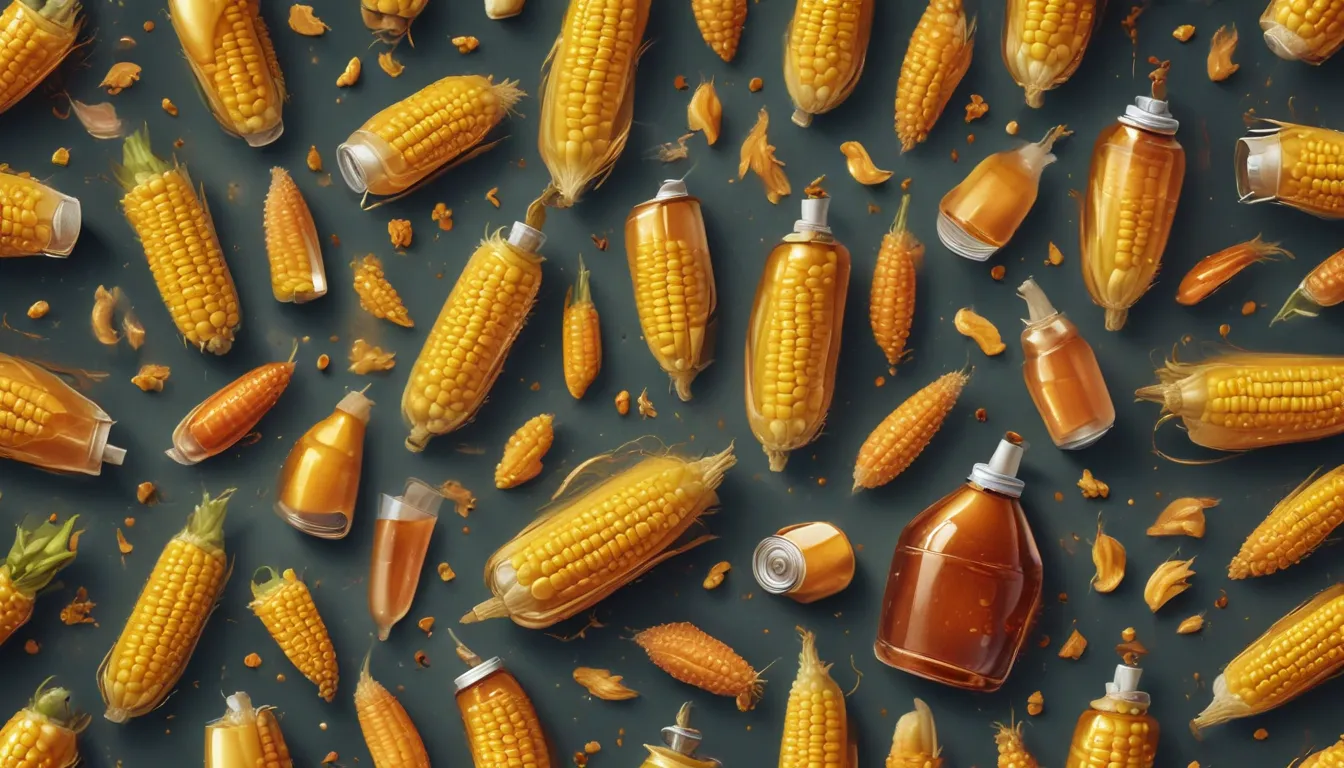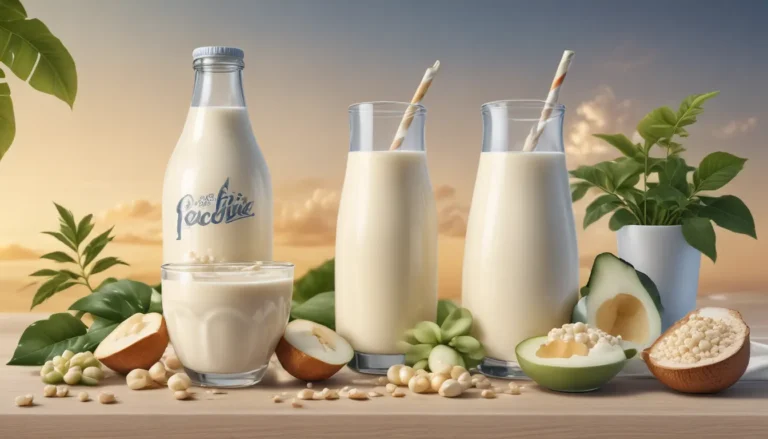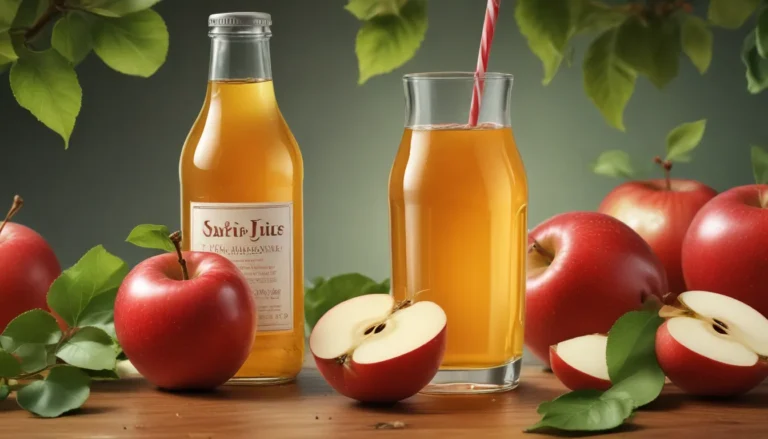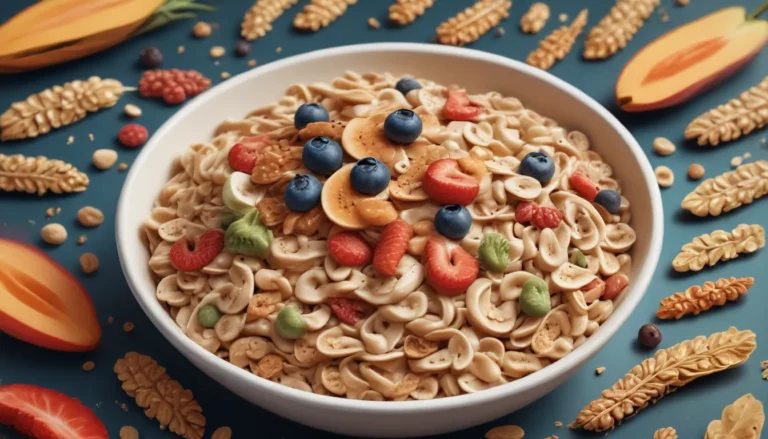The pictures in our articles might not always show exactly what the text is talking about. We use these images to make the article more interesting and eye-catching. They are there to add to the text, but not to replace it or show every detail.
Are you curious about corn syrup and its role in the world of food production? From its origins to controversies surrounding its health effects, corn syrup is a fascinating ingredient with a complex reputation. In this comprehensive guide, we will explore the key facts about corn syrup, its uses, nutritional value, and potential impact on health. Whether you are a health-conscious individual or simply interested in the inner workings of the food industry, this article will provide valuable insights to help you make informed choices.
The Sweet Origins of Corn Syrup
Corn syrup is derived from corn starch through a process that breaks down the starch into individual glucose molecules, resulting in a thick, sweet syrup. This high-concentration sweetener is even sweeter than granulated sugar, making it a popular choice for sweetening a wide variety of products.
Sweetening Your World
Known for its versatility, corn syrup is a key ingredient in candies, baked goods, beverages, and even some savory dishes. Its liquid form makes it easy to incorporate into recipes, adding sweetness and depth of flavor.
- Corn syrup plays a crucial role in inhibiting crystal formation, ensuring a silky texture in homemade ice cream or caramel sauce.
- Its properties as a thickening agent make it a staple in jams, jellies, and sauces, enhancing their consistency and mouthfeel.
Facts About Corn Syrup’s Nutritional Value
- A tablespoon of corn syrup contains around 60 calories, making it a calorie-dense sweetener that should be consumed in moderation as part of a balanced diet.
- Good news for individuals with gluten sensitivities – corn syrup is naturally gluten-free, offering a suitable option for those following a gluten-free diet.
Understanding the Types of Corn Syrup
There are two main types of corn syrup: natural corn syrup and high fructose corn syrup (HFCS). Natural corn syrup contains mainly glucose, while HFCS has a higher fructose content. This distinction is important when considering the nutritional impact of corn syrup on the body.
Exploring Corn Syrup’s Role in Cooking
- When used in baked goods, corn syrup helps retain moisture and prevents them from becoming dry, resulting in a soft and chewy texture in cookies and bars.
- Corn syrup can be used as a substitute for honey in some recipes, but it's essential to note that the flavor and texture may vary slightly.
Debunking Controversies Surrounding Corn Syrup
Despite its widespread use, corn syrup has faced criticism for its association with health issues such as obesity and diabetes. While scientific evidence on its negative impact is inconclusive, moderation is key when consuming products containing corn syrup.
- Corn syrup is not limited to the food industry and is also used in the production of cosmetics, pharmaceuticals, and as a glue in various applications.
Striking a Balance: Moderation is Key
After exploring the fascinating facts about corn syrup, it's essential to understand the benefits and drawbacks of this sweetener. While it can enhance the flavor and shelf life of food products, excessive consumption of corn syrup can contribute to health issues.
- Opting for natural and whole food sources of sweetness, such as fruits and honey, can provide a healthier alternative to corn syrup in your diet.
FAQs: Common Questions About Corn Syrup
- Q: Is corn syrup the same as high fructose corn syrup?
A: No, corn syrup and high fructose corn syrup are different, with varying glucose and fructose contents. - Q: Can corn syrup be harmful to health?
A: Consuming excessive amounts of corn syrup, particularly high fructose corn syrup, has been linked to health issues. Moderation is advised. - Q: Can corn syrup be substituted in recipes?
A: Yes, alternatives such as honey or maple syrup can be used as substitutes, though taste and texture may vary.
In conclusion, by being aware of the impact of corn syrup and making conscious decisions, individuals can strike a balance between enjoying their favorite treats and maintaining a healthy lifestyle. Remember, moderation is key when it comes to incorporating corn syrup into your diet.
As you continue your journey in exploring various ingredients and their impact on your health, remember to always seek reliable sources of information. Trust in our commitment to providing you with accurate and engaging content that will empower you to make informed choices. Dive into the world of corn syrup with a newfound understanding of its role in the culinary landscape, and make conscious decisions about the foods you consume.






